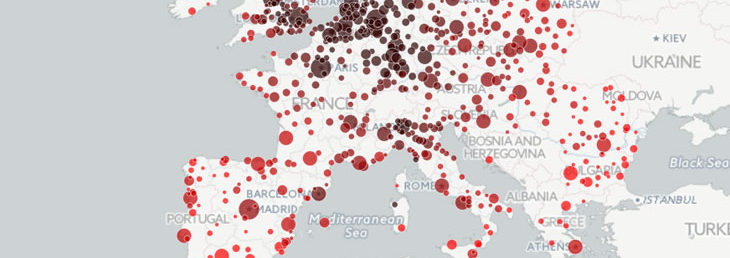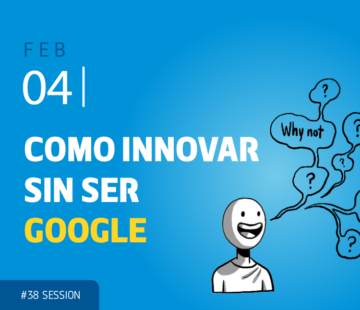More on smart cities getting smarter by collaborating

As we argued in our latest post, collaboration could make the major difference to the development of the smart city. Then, we mentioned the cases of organizational changes in local administrations, sharing experiences and best practices, and creating standards to share as some of the many new models of cooperation and engagement that cities wanting to become smarter could leverage. Now is time to also consider some other models as sharing data and public-private partnerships.
Sharing Data
Digital technology is transforming the way cities manage transport, health, education, retail, energy, waste, water and other urban infrastructures. Urban digitalization is therefore making data the currency of present and future smart cities and communities. Local governments are increasingly using data to allocate resources based on real-time evidence and turning this data it into information, knowledge and insight to better manage urban congestion, maximise energy efficiency or enhance public security and resilience.
It’s is difficult to imagine our cities becoming smarter without the data (and, of course, without the digital services and the underlying connectivity). Through data, businesses, government and citizens can work together to create more liveable cities and drive change from the bottom up. Currently, big quantities of data are already being collected by different organizations and governments, but only by combining these different sources of data it is possible to create the context needed to really address the use cases necessary to develop smarter cities.
This is why open data, data that anyone can access, use and share, is vital to the development of smart city services and decision making. Still, most of cities and local governments are working within their own, isolated data environment. This fragmented approach makes very difficult to envision more global and sharable smart city initiatives.
But many initiatives are currently exploring how we can create, share, collaborate and use information to create better cities. For start, understanding data and what to do with it is not a core competency of local councils, so openness nurtures innovation. Governments need to work more closely with companies and citizens in order to understand how data can and should be used to create smarter cities. Besides, a number of issues related to sharing data, from privacy to data fragmentation, must be overcome before we start living in smarter cities, a goal difficult to achieve if not by businesses and organisations across sectors working together.
Cities are currently encouraged to create open data sharing platforms as a mean to contribute to a rise of evidence-based decision making, improved and more efficient services and remarkable cost savings. The European Commission’s Urban Data Platform, for instance, is an open source tool facilitating data sharing and comparative research across the European Union. The platform’s interactive data visualizations provide users with ample information on a range of topics that can be explored at both local and regional levels.
Public-Private Partnerships
Public-private partnerships (PPP) are becoming an important and increasing mechanism for cities to become smarter. In many cases, without this kind of partnerships, a smart city plan will most likely remain stuck on the drawing board. Choosing a PPP to manage and finance Smart City project enables local governments to increase the efficiency of public services while improving municipal finances.
Paying for services instead of having to invest to set up an infrastructure lowers risks. Costs can be optimized by linking remuneration with tangible results. Efficiencies can be gained by transferring to public organizations managerial governance styles including simplification of procedures, modernization of tools or better knowledge transfer. PPPs usually imply diversifying the access to financial resources and capital without increasing local governments’ indebtedness. Innovation is foster by encouraging companies to propose more innovative solutions than other potential private partners to win bids.
PPP contracts for Smart City implementations may be established in a variety of fields and for large-scale infrastructure projects or just smaller projects such, for instance, the development of an app for smartphones. A wide range of legal arrangements available for the different parties can be added to this wide variety of scales and topics in which local governments may establish PPPs. In developing Smart City projects, the local government may partner both with big service and technology providers, as well as with small and medium-sized local firms or start-ups, or engage in a technical partnership with local universities or research centers.
This variety adds just one of the many difficulties facing PPP for Smart Cities. With all the benefits of Public-Private Partnerships, their success is never guaranteed. As in the case of any other kind of collaborative initiatives and partnerships, PPP projects also need special care, mindsets, attitudes, and methodologies.
Led by IESE Business School and part of the United Nations’ International Centre of Excellence on PPPs program, PPP for Cities wants to become an international benchmark in the provision of advisory services to public administrations regarding how to improve and plan their cities throught the public-private collaboration. As a specialist center on PPPs in Smart and Sustainable Cities, PPP for Cities is a research, innovation and advisory center identifying and disseminating good practices internationally; creating working standards for designing, bidding, contracting, managing and evaluating PPP for cities projects; and creating spaces of debate among companies, administrations and experts from all over the world on this specific kind of collaboration.
40 Brilliant Open Data Projects Preparing Smart Cities for 2018
Urban Data Platform – European Commission
PPP for Cities
